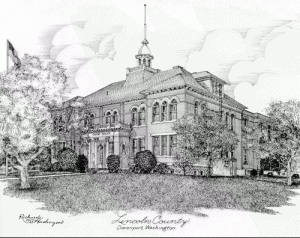Contents
About the Auditor’s Office
The auditor’s duties and responsibilities are quite varied and far ranging. In most counties the auditor performs four major functions; ex-officio supervisor of elections and voter registration, recording and maintenance of permanent county records, licensing of vehicles and vessels, and financial services.
ELECTIONS AND VOTER REGISTRATION
The auditor is responsible for administering all federal, state, county, municipal and special purpose district elections. In addition to the annual primary and general elections, as many as four special elections are conducted each year from February through May.
As part of the election process, the auditor prepares ballots and voting devices, programs and tests ballot tabulation systems, provides for public notices, and recruits, and trains election workers. The auditor also provides for the preparation and mailing of an election entirely by mail.
The auditor is responsible for tabulation of ballots and publication of official election returns. The auditor chairs the county canvas board, which includes the prosecuting attorney and the chair of the board of county commissioners. This board determines the status of questionable ballots and certifies official election returns, which are then transmitted to the Secretary of State.
As chief registrar of voters, each auditor maintains voter registration records for his/her own county. Voter registrations, which may be received through the motor voter program, through the mail or in person, are all processed by the auditor and added to the registered voter file. All changes to the file such as name and /or address changes, deletions due to death, or voting inactivity as defined in statute, are all accomplished by this division. Maintenance of jurisdictional boundary lines and assignment of voters to their appropriate congressional, legislative and special purpose districts fall under the responsibility of the registrar of voters. The auditor works cooperatively with the census officials to define precinct boundary lines and to assist with redistricting efforts.
RECORDER
As the county recorder, the auditor’s duties include maintaining, in perpetuity, the county’s permanent, historic records. Real property records such as deeds, real estate contracts and liens are presented to the auditor to be placed in the official public record to serve as an official notice to all interested parties. The date, time of receipt and a unique auditor’s file number are assigned to each document presented. An index is created and an image of the document is captured and preserved so that present and future generations may access and retrieve each recorded document. Other types of documents recorded include, but are not limited to, surveys, plats, veterans’ discharge papers, name changes accomplished through district court, marriage licenses and oaths of office for county officials.
FINANCE
In the non-charter counties, the auditor maintains a central accounting system for all of county government. This entails the control and issuance of disbursements, financial accounting and reporting, grant accounting, payroll, and fixed asset inventory. Additionally, some auditors also act as the county budget officer. The internal audit duties may also fall under the direction of the county auditor.
LICENSING
As agents for the Washington State Department of Licensing, the county auditor and the subagents they appoint are responsible for the issuance of vehicle and vessel licenses and titles. This encompasses the processing of a wide variety of titles and registrations, as well as the collection of license fees and vehicle excise taxes, and issuing license plates and renewal tabs. The auditor may also act as an agent for the Department of Revenue in collecting sales tax when transfers of ownership for vehicles and vessels are processed.
The auditor issues marriage licenses and retains a permanent copy of that official record, also providing a record to the Department of Vital Statistics.
MISCELLANEOUS DUTIES
The auditor is a member of the county finance committee, which also includes the treasurer and the chair of the board of county commissioners.

